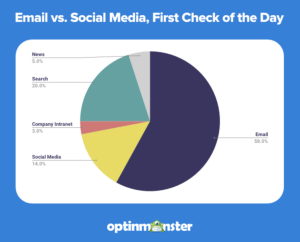We regularly read about entrepreneurs starting their companies at a young age. Bill Gates was 19 when he founded Microsoft—the same age Mark Zuckerberg was when he launched Facebook, and Michael Dell when he began Dell Technologies. These are classic cases of successful entrepreneurship among the young.
But don’t be fooled by the age of these tech prodigies. Most successful founders have an average age at startup of 40, according to a Harvard study. And older entrepreneurs tend to do better. Recent research suggests that a 60-year-old who starts a new business is three times more likely to succeed than a 30-year-old. I’m one example: I started my company, The Humphrey Group, at 43 and more than 30 years later, it’s still going strong.
Here are five reasons maturity is an asset when starting a business:
1. EXPERIENCE
First, middle-aged entrepreneurs succeed because they bring valuable experience to their startup.
My decade of employment in corporate jobs provided a firm foundation for my company. During those years I worked for four companies, writing speeches for CEOs. This experience proved extraordinarily valuable when I designed and launched our company’s first offering: our Executive Speaking Program.
The experience you bring gives you credibility and allows you to create a company that will thrive.
2. MARKET KNOWLEDGE
Mid-career entrepreneurs often prosper because they know the target market well. If you spend years in a corporate job, you’ll discover products and services that are needed and that you can provide.
I learned from my corporate days that executives wanted to be better at crafting and delivering their speeches and presentations. They’d come to me with a draft and say, “Can you give me a hand here?” I’d help them find a message and clarify their thoughts. And in doing that, I saw what I believed was an opportunity.
But I wanted to test the waters first, before launching the company. So I ran a “pilot” seminar for the firm where I was working. Many C-level executives came. I also ran focus groups, where executives talked about what they’d want. My hunch was right, so I launched The Humphrey Group.
If you are interested in entrepreneurship, ask yourself, “What can I provide that people need and want?” “Do I see a market opportunity?”
3. A STRONG NETWORK
When you’re more senior, you are more likely to have a developed network. After I launched The Humphrey Group, I gained business from the executives I had written speeches for. One of my biggest supporters was the CEO of Shell Canada. I asked him for references, and he gave me the names of other CEOs saying, “I expect you to deliver the same quality that you delivered to me.”
My contacts also included the C-level leaders in the two banks where I had been a speechwriter. They suggested people I should approach and were also my first clients.
A strong network is a key to success. You’ll develop that over time, but it’s wise to start cultivating those contacts now. Those ties, and the respect and good will you create, will serve you well when you start your business.
4. CONFIDENCE
Confidence, which often comes with age, is another quality you need to succeed. That confidence includes a belief in yourself and what you are offering.
When I drove through the financial district in Toronto, I’d look at the women and men in business suits and say to myself: “There’s a client.” I felt that everyone in a senior role would buy what we were offering, once they knew about it. That’s the level of confidence required when you’re an entrepreneur.
Much of your success will come from your ability to look potential clients in the eye and tell them how much they will gain from working with your firm. That level of confidence comes to mid-career entrepreneurs because they have experience, market knowledge, and valuable networks.
5. PASSION
Passion is another vital element for success—and older entrepreneurs, who have long dreamed of starting a business, usually have this quality in abundance.
When I launched The Humphrey Group, I had envisioned it in my mind for three years. Whenever my family would take a road trip, my hopes and plans were the subject of conversation. I lived and breathed it long before I incorporated The Humphrey Group.
Once my firm was launched, I would work any number of hours—often all day and well into the night—thinking through pitches and presentations to customers. This was not work; it was something that I was passionate about. Every aspect of the business was part of a dream I was living. This intense relationship with your startup is a necessary ingredient to success.
(19)
Report Post






